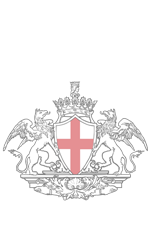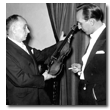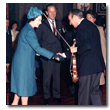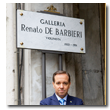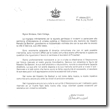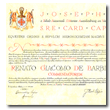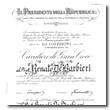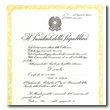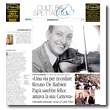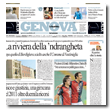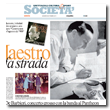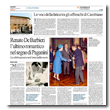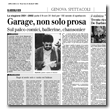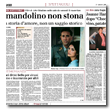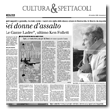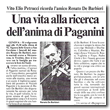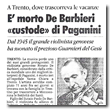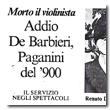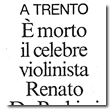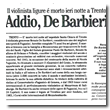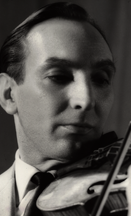
(Genoa, November 5, 1920 - Trento, October 30, 1991)
During his childhood, Renato – the son of renowned violin-maker Paolo De Barbieri – met in his father's workshop the greatest violinists of the century, including Fritz Kreisler, Jasha Heifetz, and Bronislaw Hubermann, besides Elman and Vasha Prihoda, with whom he studied. Renato De Barbieri began studying the violin when he was five. At eight, he played Mozart's Concerto in G Major with orchestra. He won several violin competitions and the award of the Accademia Musicale Chigiana in Siena, which marked the start of his concert career. When still very young, after participating in the commemoration of the 100th anniversary of Nicolò Paganini's death, Renato was invited to play the Guarneri del Gesù "Cannone" violin, which once belonged to the sublime Genoan violinist, in a concert broadcast worldwide on radio in 1945. He played the same instrument in 1947 in a short film called "La Voce di Paganini" (Paganini's Voice) that won 1st prize for its musical performance at the Venice International Film Festival.
In 1958, Renato De Barbieri was nominated member of the Honorary Committee for the celebrations of the 100th birthday of Ysaye in Brussels, Belgium. In 1965 he performed Beethoven's Concerto for Violin for the 50th anniversary of the Mozarteum in Salzburg. On November 22 of that same year, he married Maria "Mariangiola" Firpo in Genoa. His son Enrico was born on October 5, 1966. In 1971 Renato played Paganini's violin in a concert at the Liederhalle of Stuttgart: the concert was a triumph and it was the first time that the famous Guarneri violin was played abroad after Paganini's death. Renato also performed for the soundtrack of the film "Nicolò Paganini" (1973). In 1980, he performed Paganini's 24 Caprices in their original form in Switzerland, which allowed the voice of the inestimable "Cannone" to resound once again. Renato played that same violin in 1982 to commemorate Paganini's 200th birthday. Music critics consider Renato De Barbieri one of the very few concert violinists to have personally contributed to defining the violin style of the 20th century. Throughout his career, he received many awards, including the "Fronda d'oro" (1961), "Premio Eur" (1974), "Premio Regionale Ligure" (1975), "Premio Internazionale per il concertismo" (1977), and "San Giorgio d'argento" (1981). In May 1982 he received the "Violino d'oro" award in the Campidoglio of Rome during the celebrations for Paganini's 200th birthday. In 1982 Renato received the "David di Michelangelo" award in Rome. In 1983 he received the "Premio Meneghino" award in Milan and the "Fieschi d'oro" award.
In 1986, Renato De Barbieri received the "Guido Monaco-Apollo Musagete" International Award in Talla (Arezzo). He gave a memorable performance in honor of Queen Elizabeth II of England during the monarch's visit to Genoa in 1980. In December 1985 he received a commemorative plaque from the International Rotary for the Year of Music. In 1988 Renato De Barbieri received the European Gold Medal for his concert work and he also received Honorary Citizenship from Mezzolombardo (Trento), where he established international summer music courses in 1983. In 1990, for the 150th anniversary commemorating Paganini's death, Renato De Barbieri was nominated Honorary President of the "Premio Paganini" International Violin Competition. For the 50th anniversary of his artistic career, he received the "Grifo d'oro" from the Mayor of Genoa, the city's most important award with the seal of the ancient republic of Genoa. Renato De Barbieri was also a jury member of the most important international violin competitions. During his career, he received many prestigious honors and distinctions in Italy and abroad, including Knight Grand Cross for Merit from the Italian Republic, the Gold Medal of Honor for Merit in Education, Culture and Art, and the Grand Cross of Honor for Art and Science from the Austrian Republic.
After his death, on recommendation of the Mayor of Genoa, Renato De Barbieri was buried in the Pantheon of the Cemetery of Staglieno (Genoa), where he was laid to rest next to Camillo Sivori, Nino Bixio and other illustrious Genoans. In 2011, the city of Mezzocorona (Trento), the Rotalian village that Renato De Barbieri loved and where he stayed for long periods, named the city park next to the Town Hall after him. In the same year, the city of Genoa decided to dedicate the street between Via Roma and Galleria Mazzini to its illustrious citizen.

